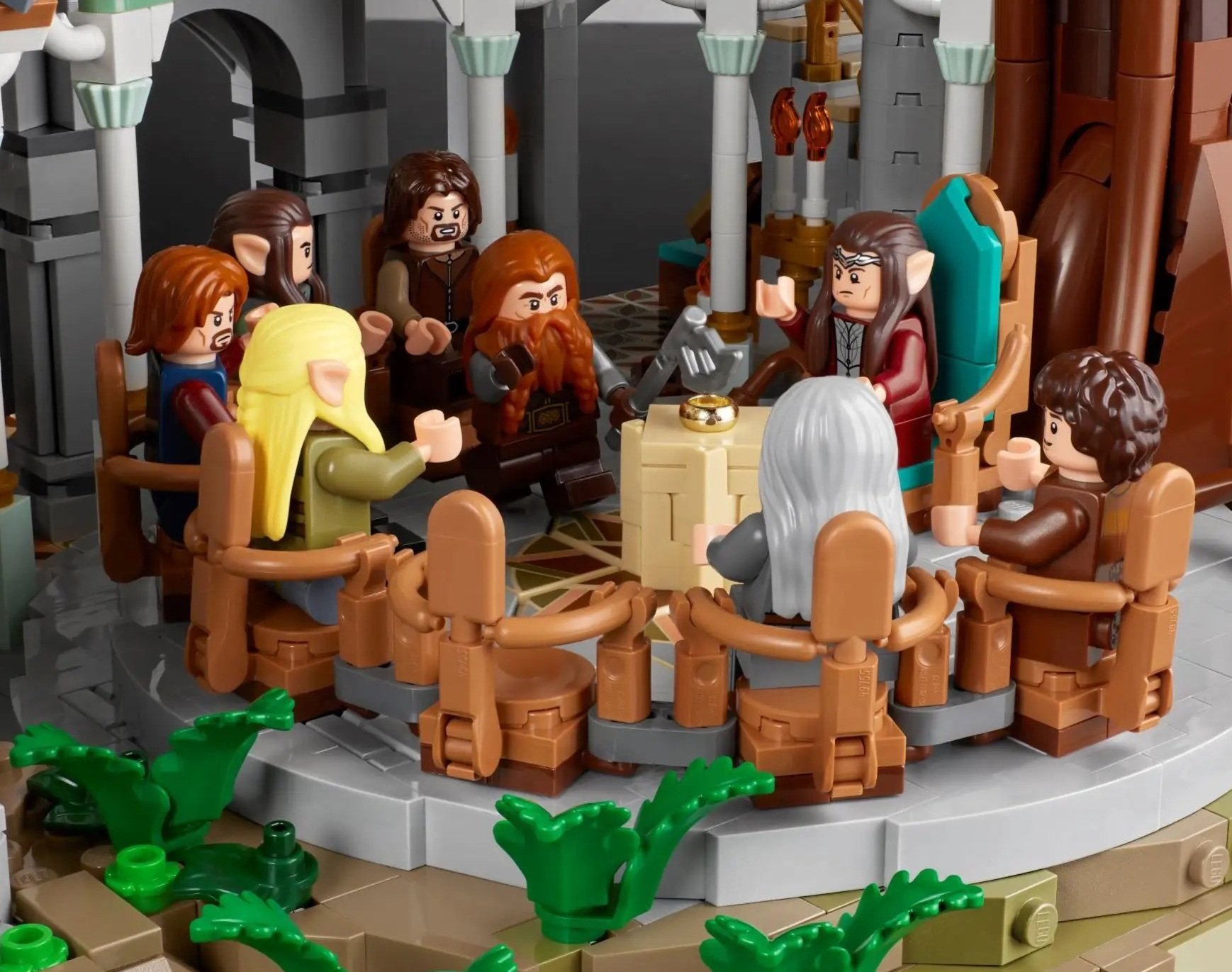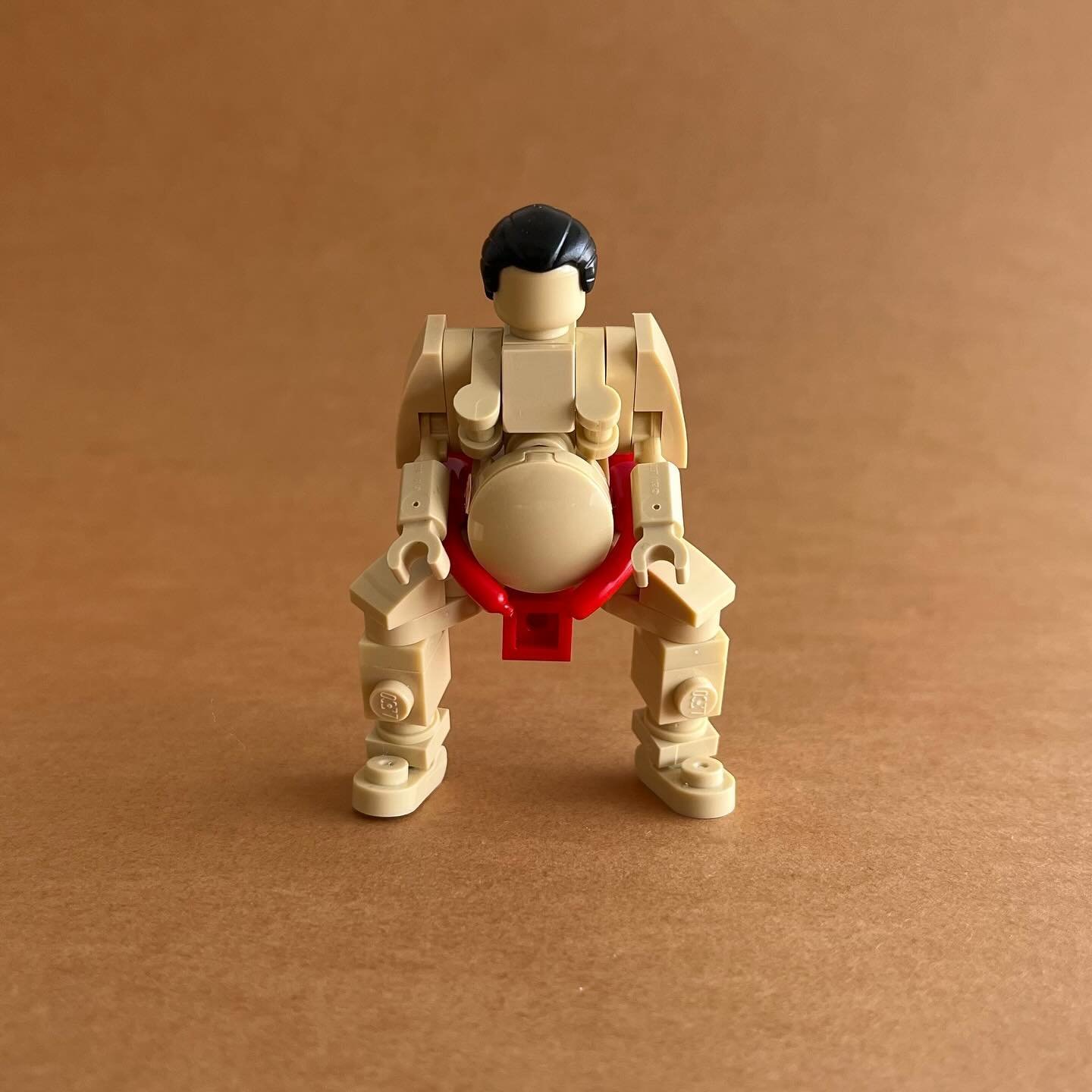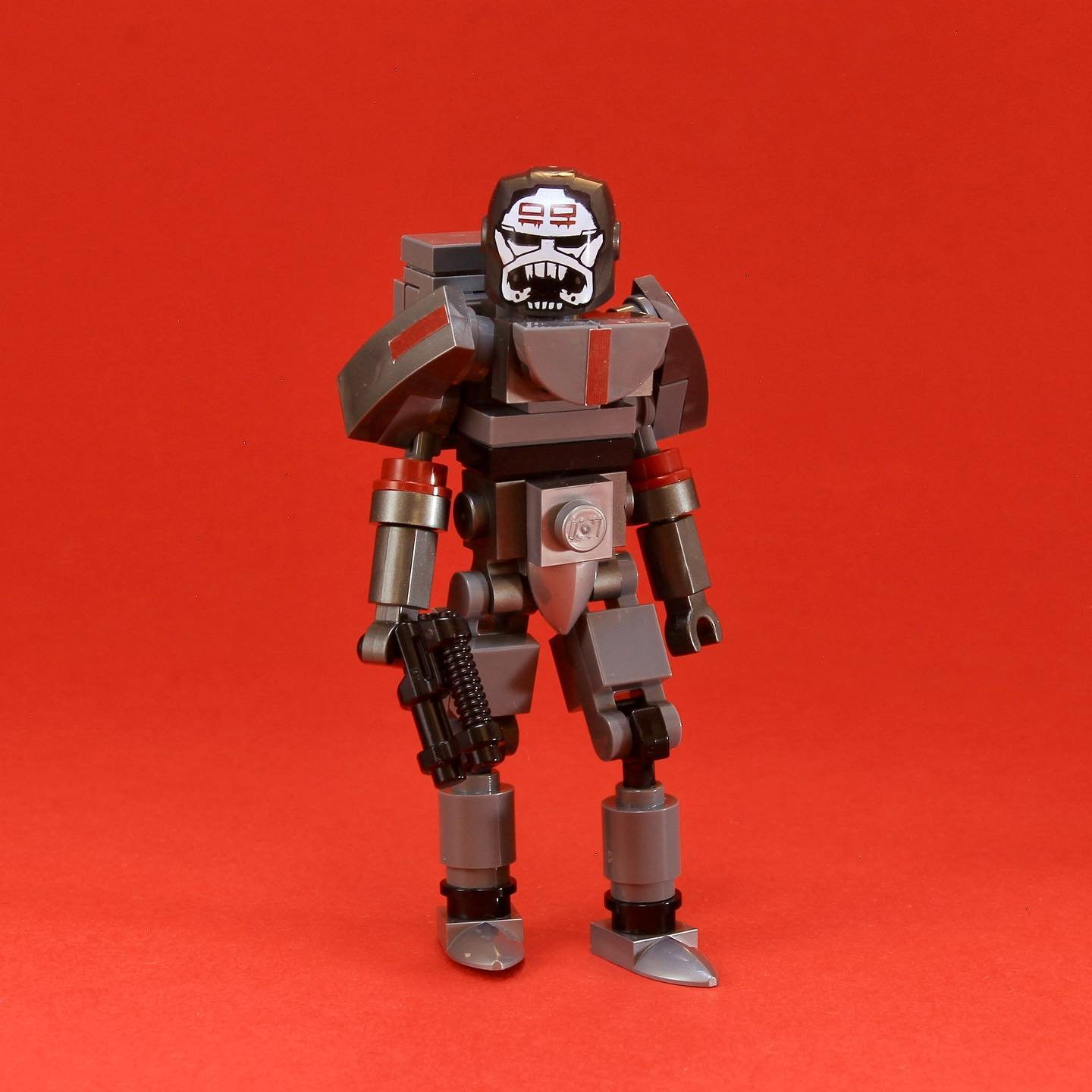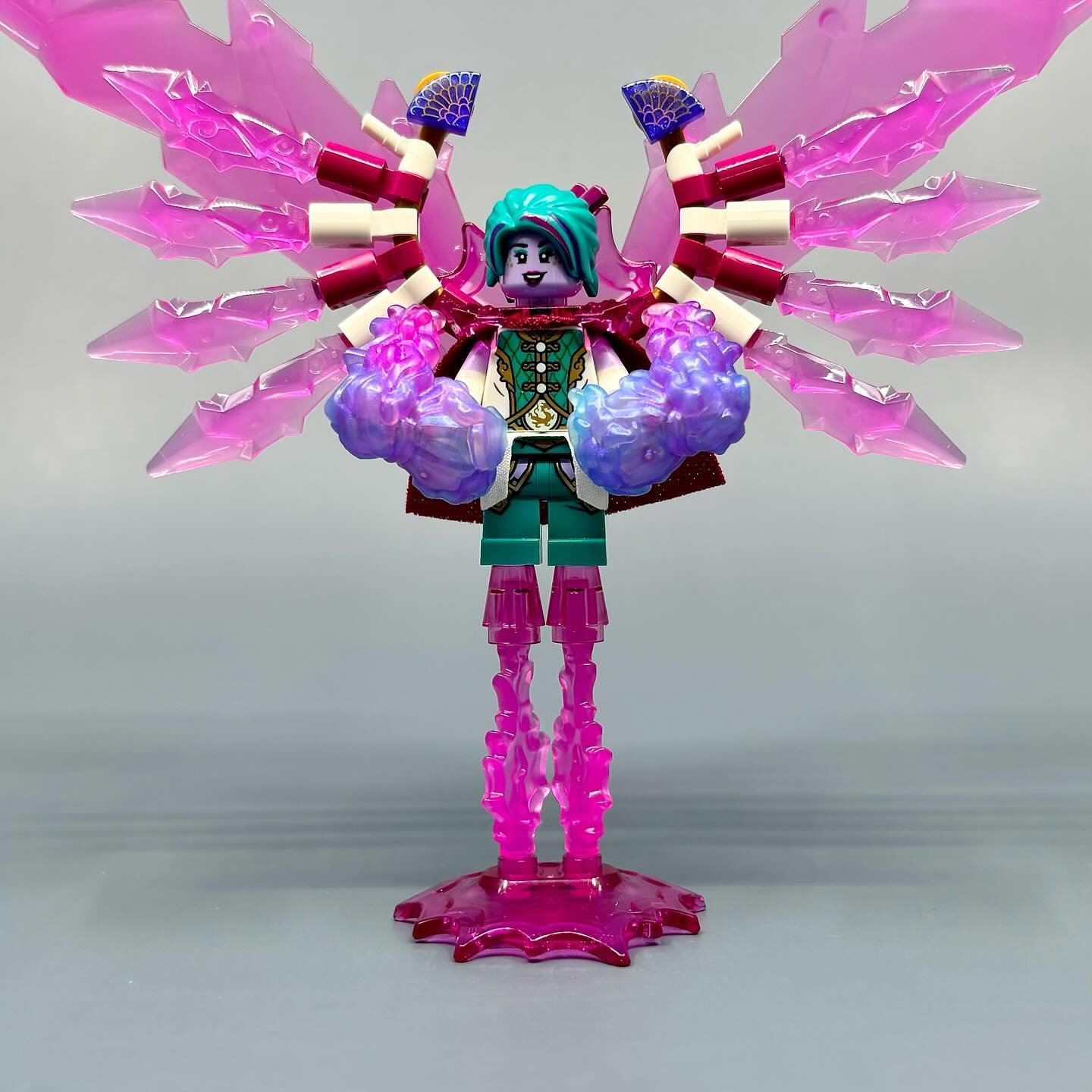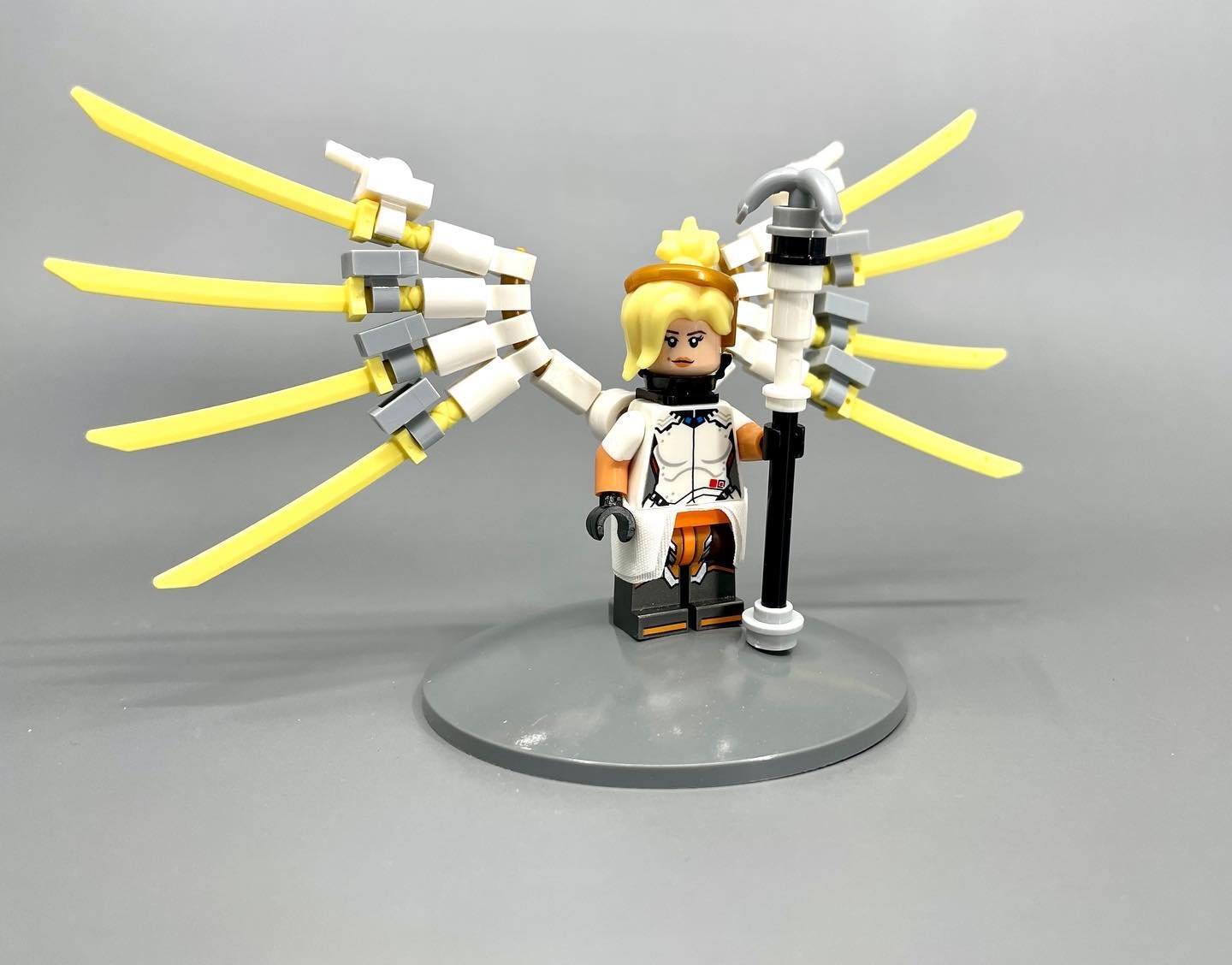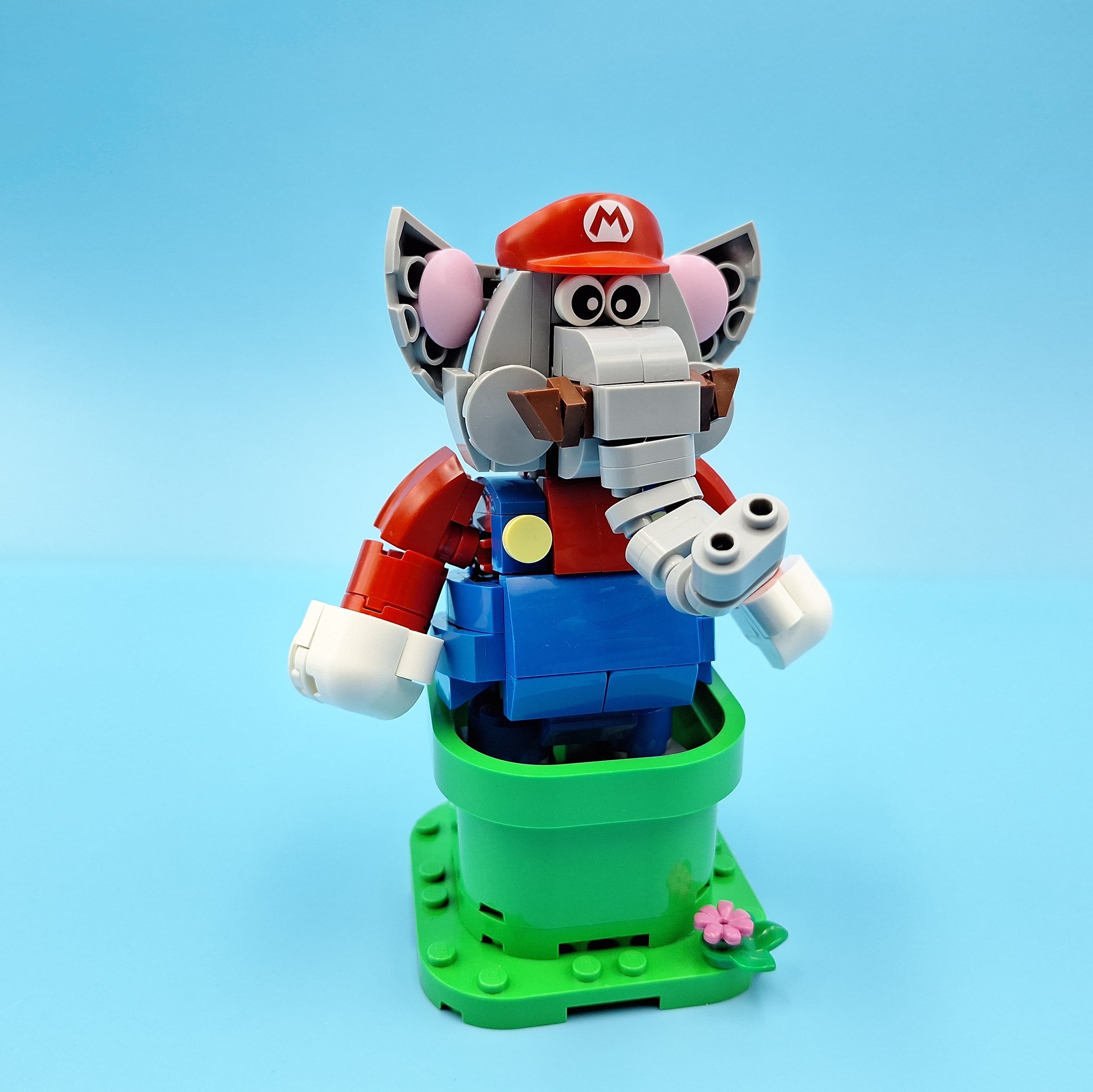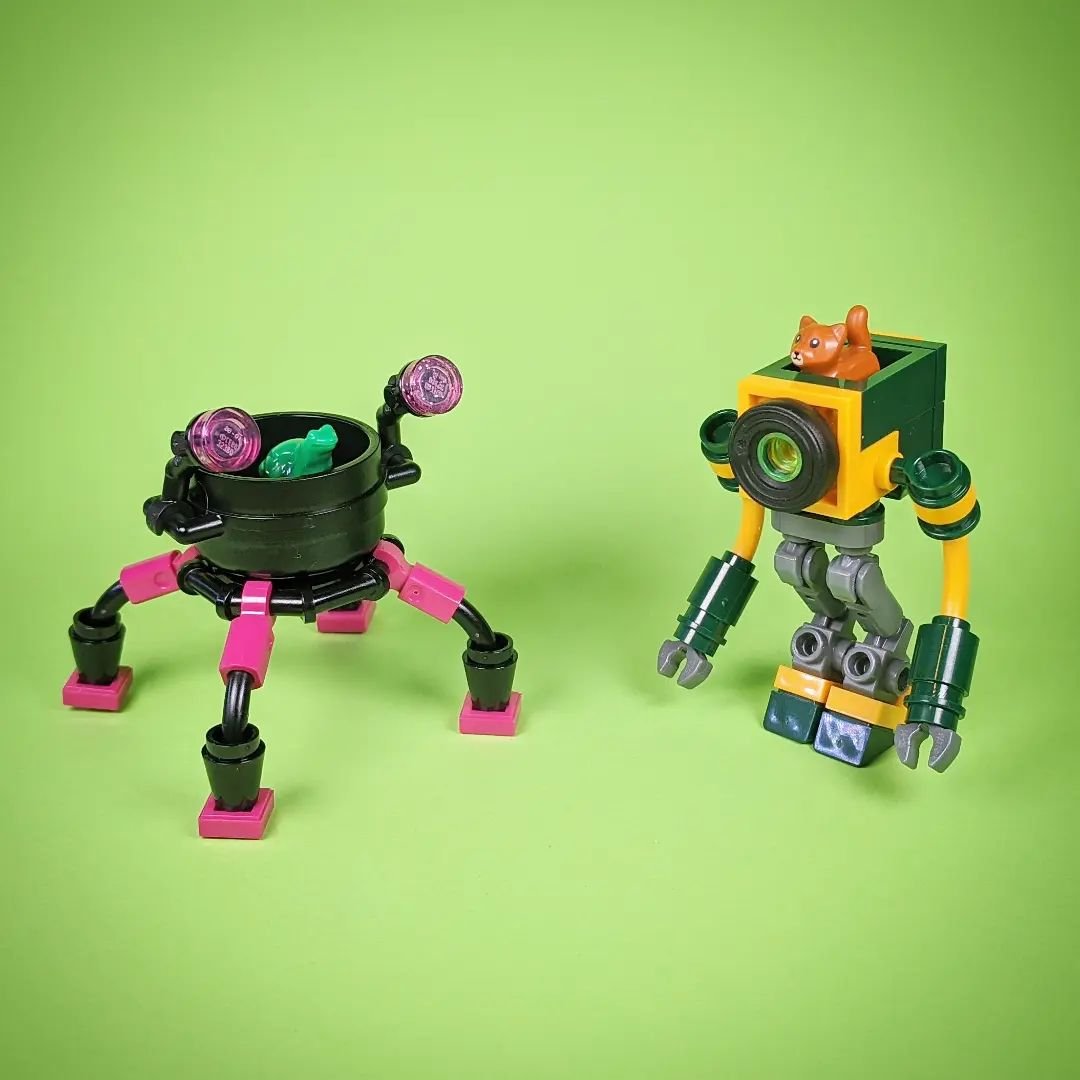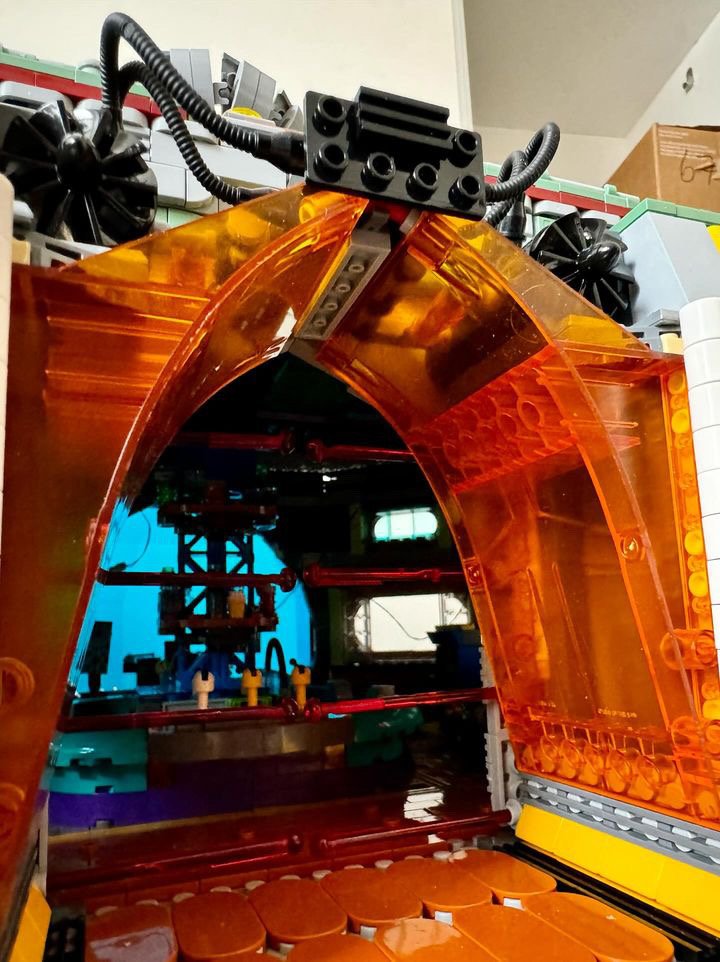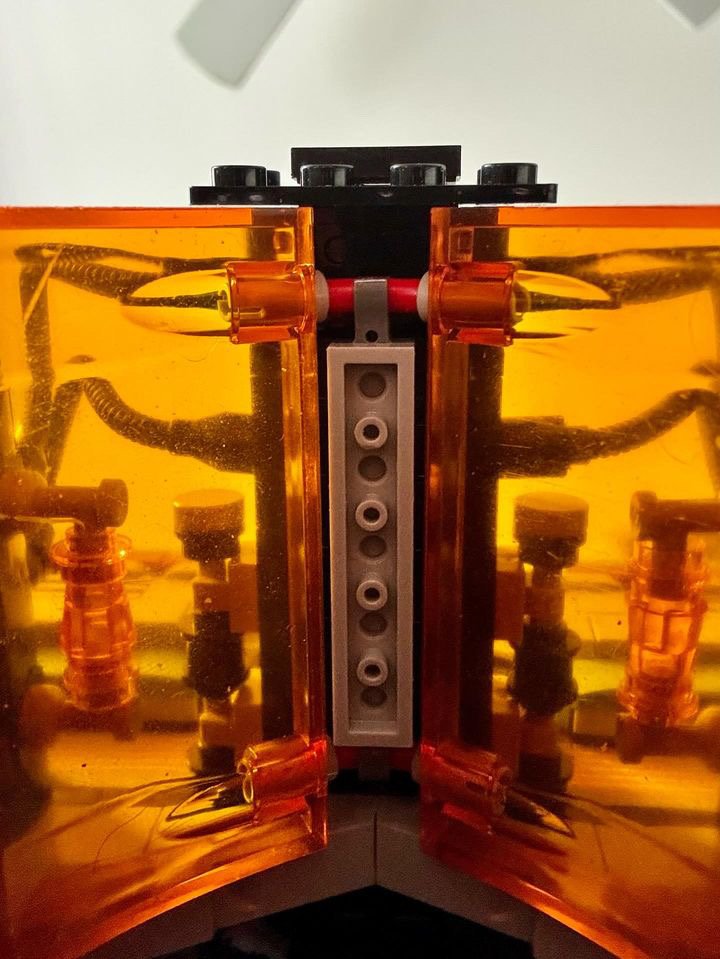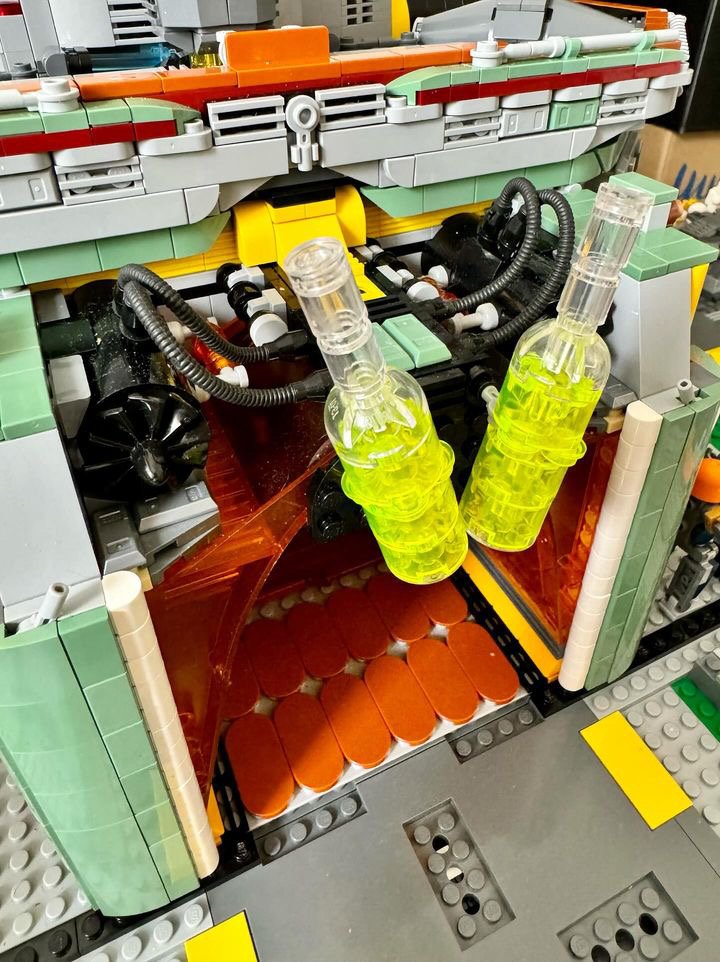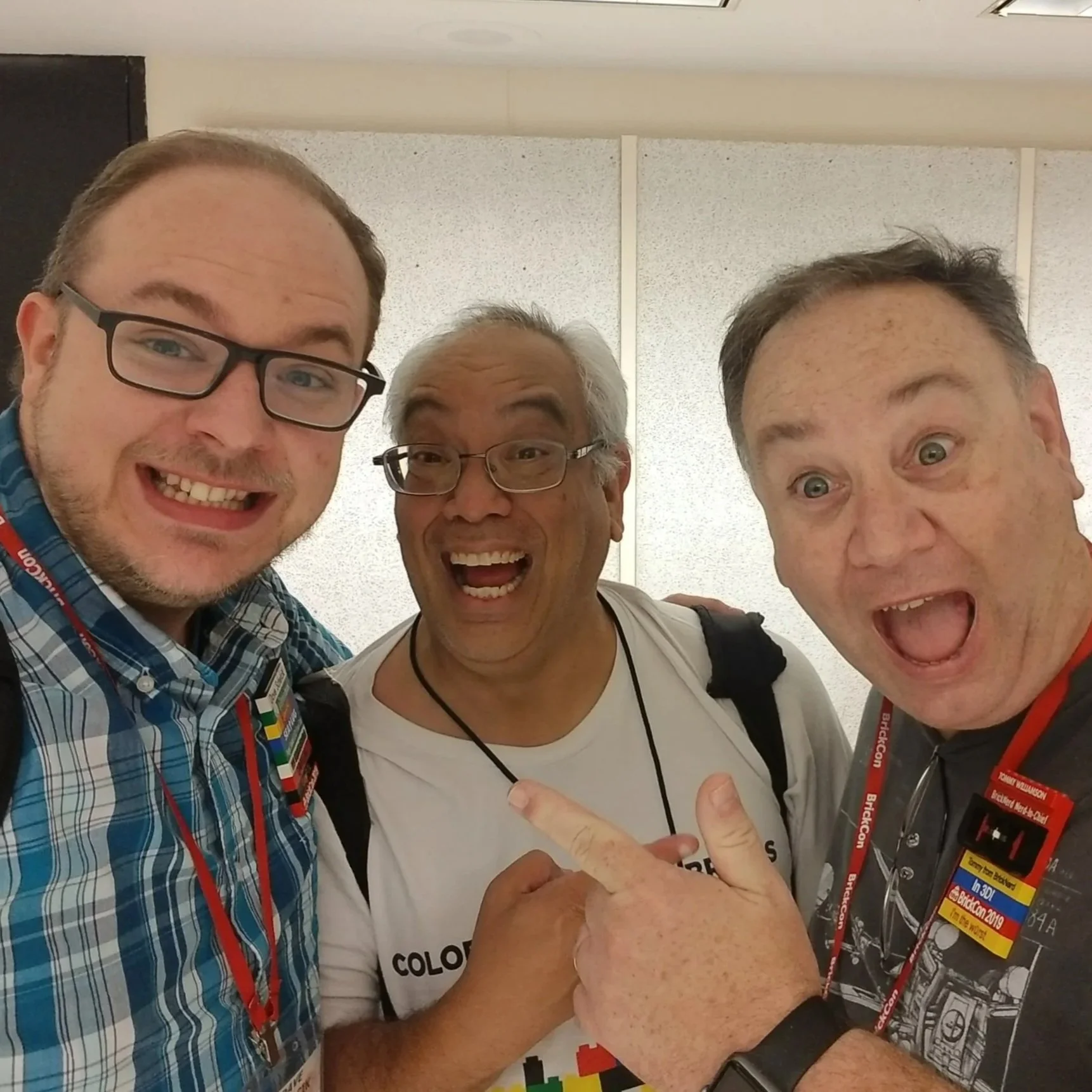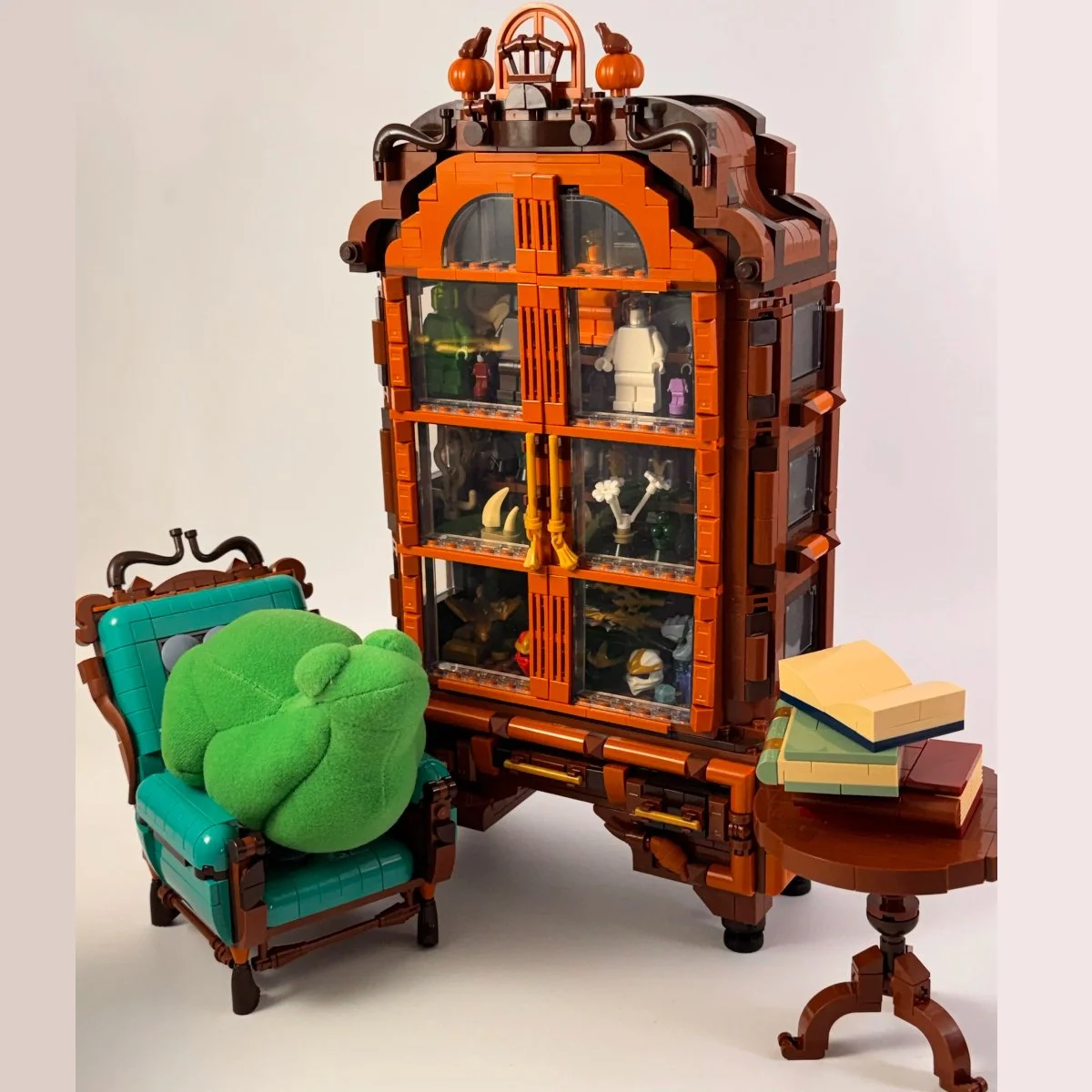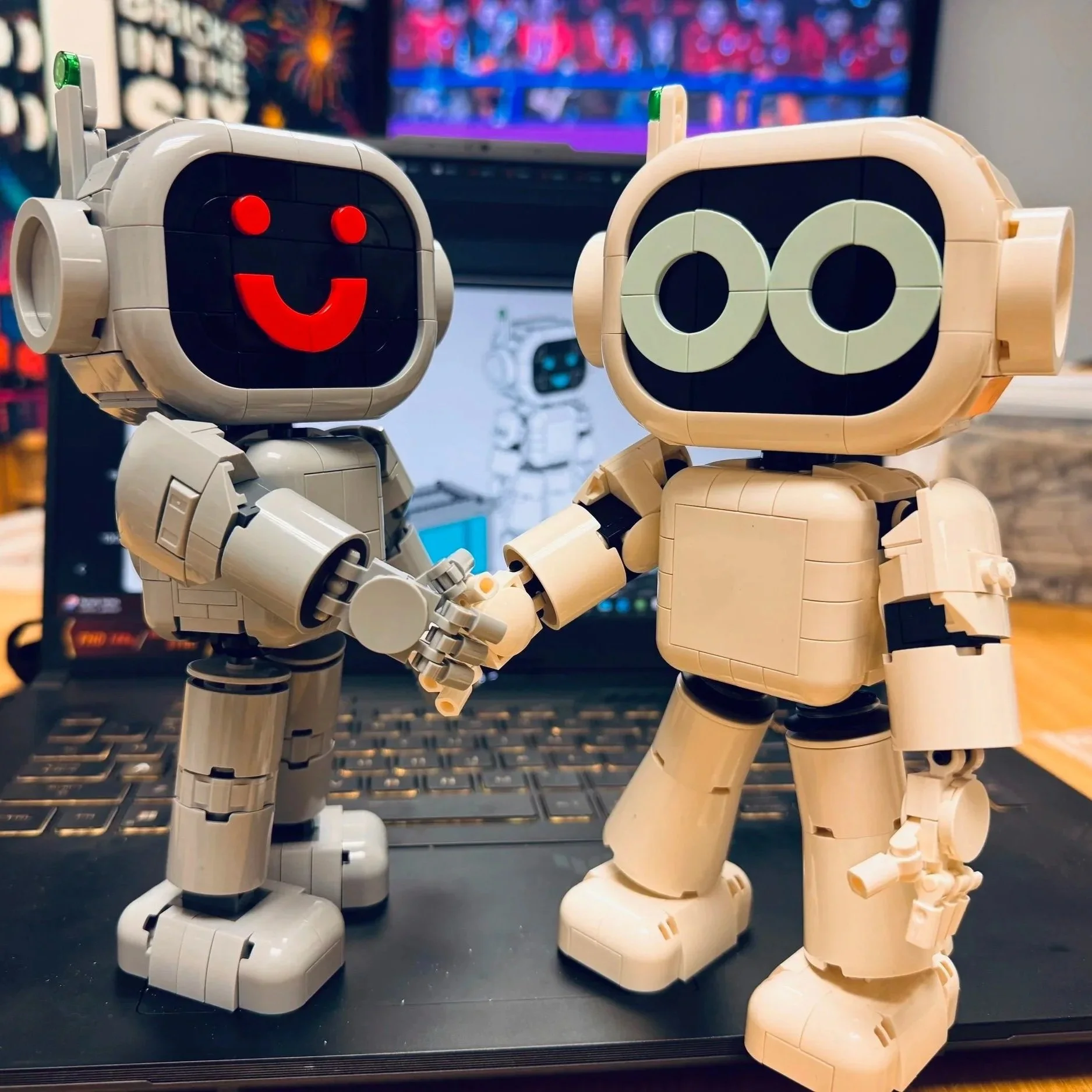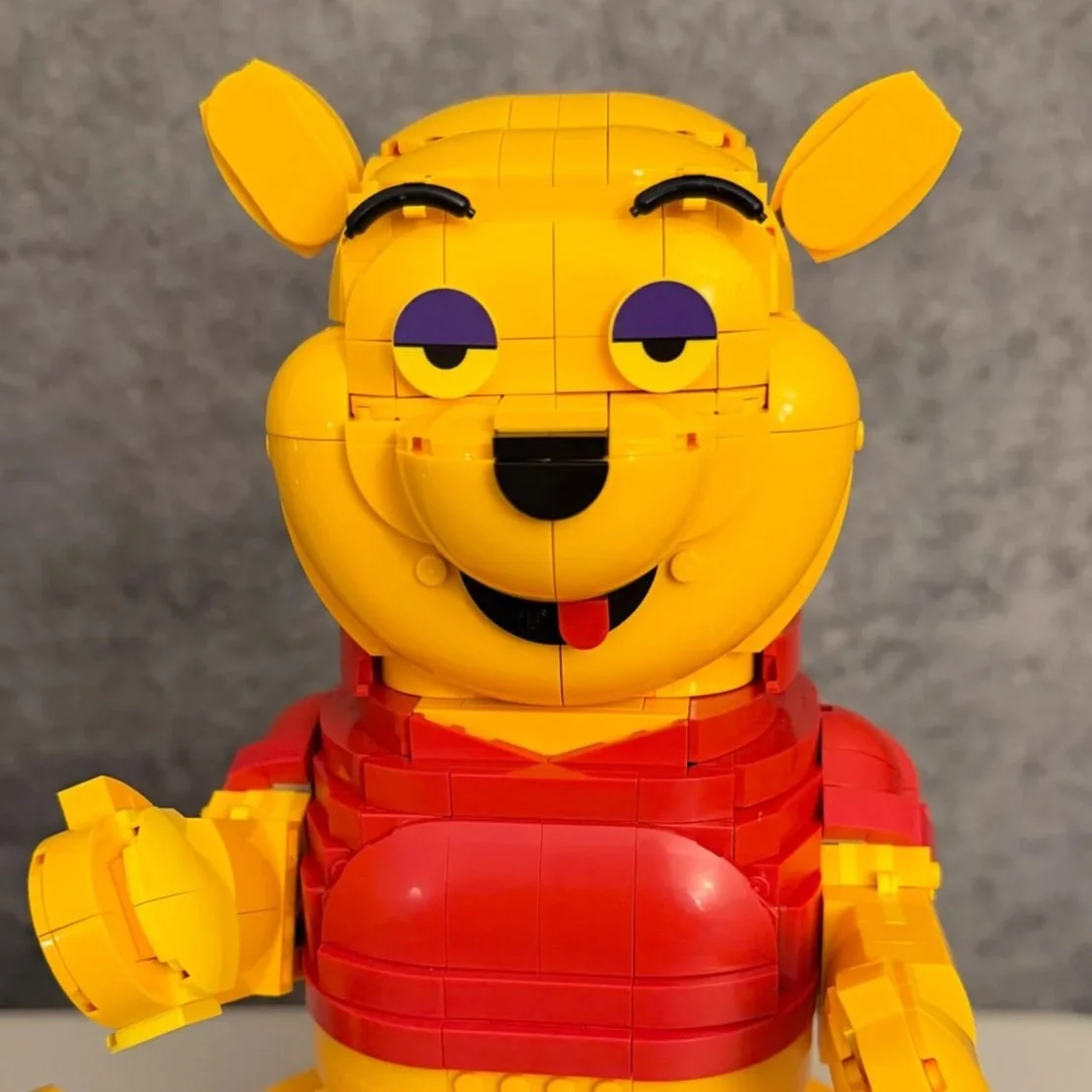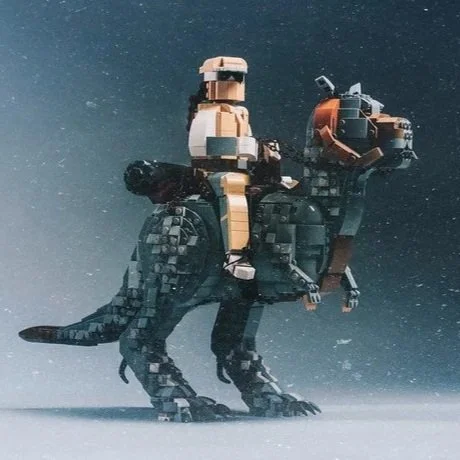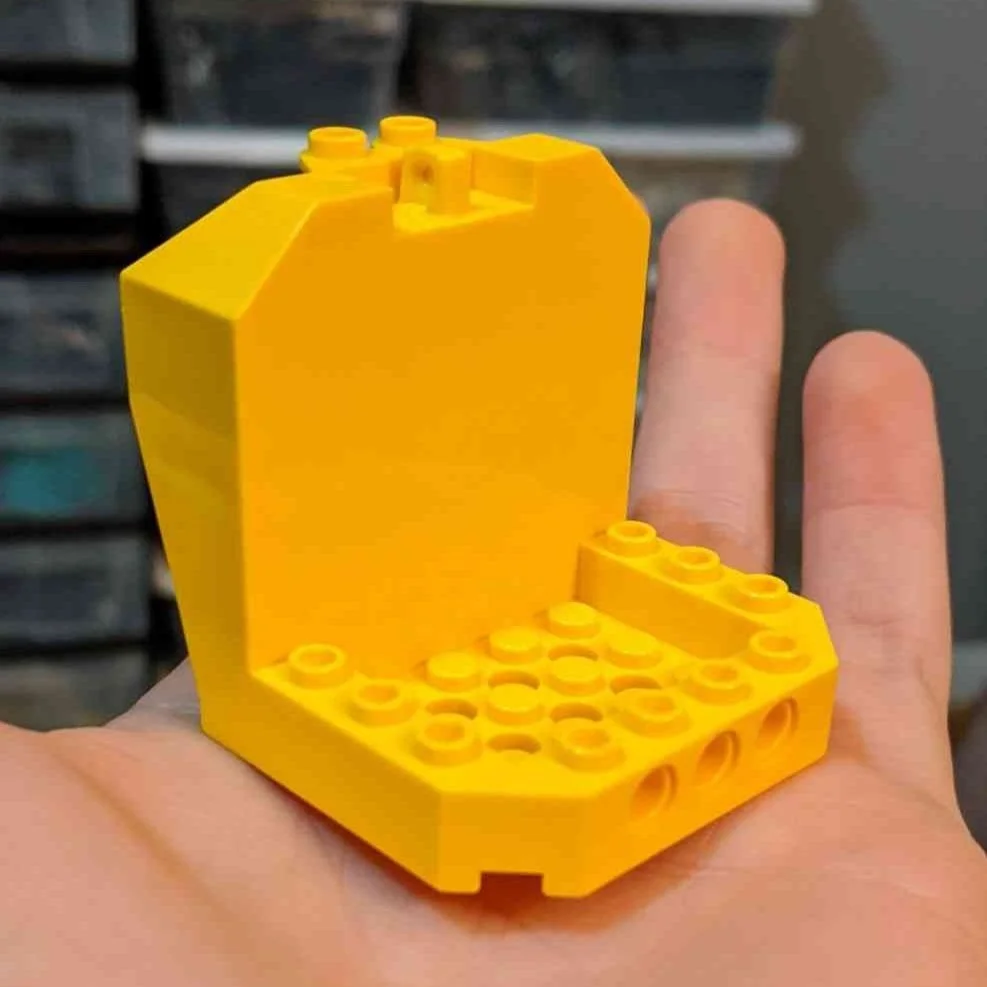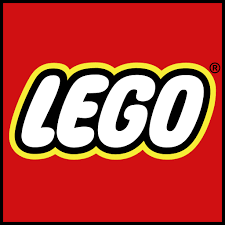A Builder's Guide to the Scrumptious LEGO Sausage
/The humble LEGO sausage element (33078) has been around since 1998. But is there still untapped yumminess there despite being so long-lived? Personally, it’s one of my favorite oddball parts with a wide variety of uses. Yet, I don’t think I ever actually used it as a sausage, hot dog, or other tubular meat stick of your choosing. I find it so much more interesting.
At its heart, it’s really just a bar that’s curved. It has all the connection possibilities of a bar but with the added functionality of having a more organic curved shape. It’s almost perfectly versatile, with one exception that does get in the way that I’ll get to later. And it’s had an explosion of colors in the last five years in particular, with nine colors currently available on LEGO’s Pick a Brick service.
So let’s dive into this odd little part that has had such a lasting and tasty presence in the LEGO part portfolio. And then, we’ll explore its multitude of uses in MOCs.
The Tasty History of the LEGO Sausage
LEGO calls it a sausage, although I’ve always referred to it as the hot dog piece. It all started in 1998 with the long-defunct LEGO Scala theme of large dolls. The first sets to feature it were picnic and kitchen sets.
Image credit: Rebrickable
Some people think of it as oddly shaped for a sausage, but you have to remember that it is based on a Danish hot dog. Take a look and tell me that LEGO designers aren’t inspired by their surroundings:
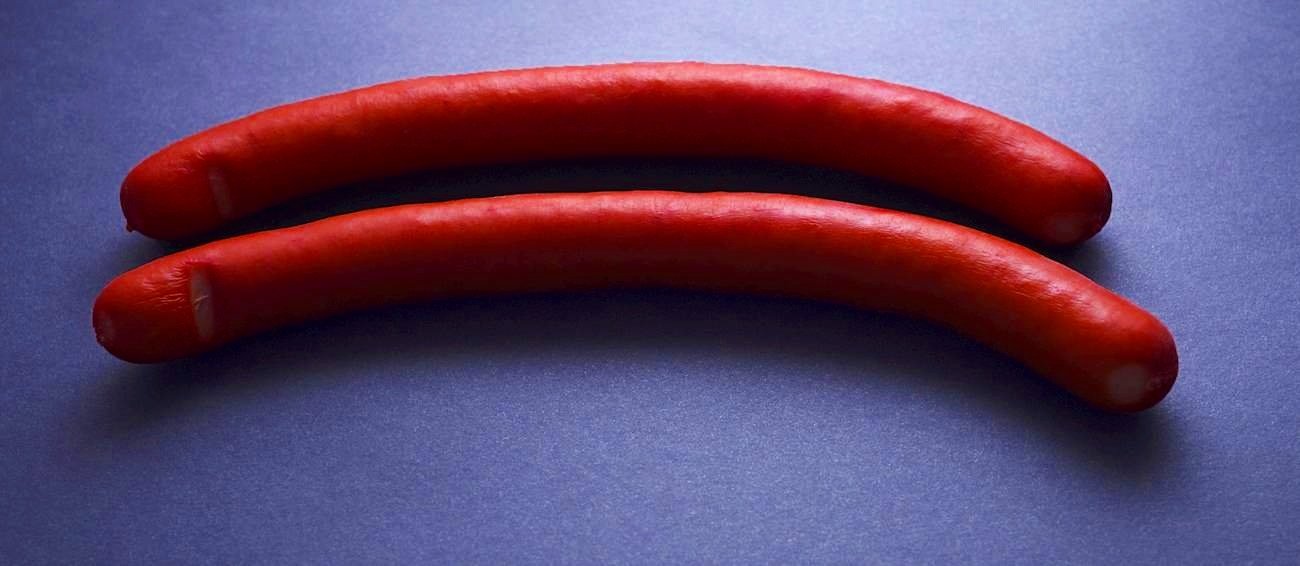
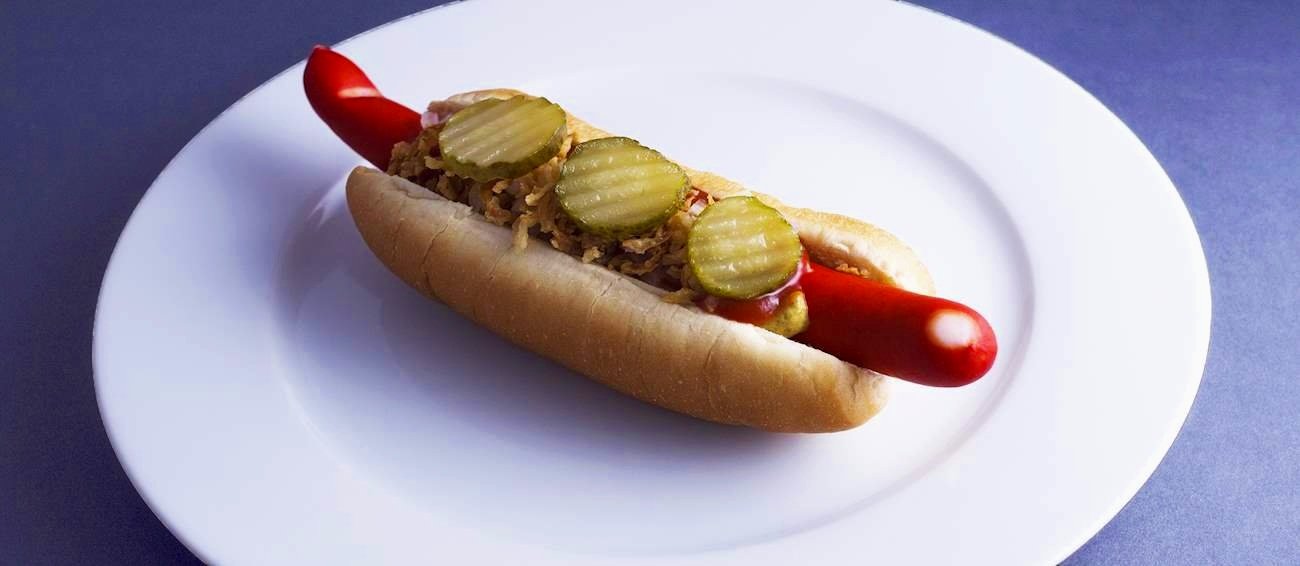
(Danish hot dog. Images via Taste Atlas)
Image via BrickLink.
The sausage element didn’t reach minifigure hands until 2002 with, oddly enough, a trio of little Coca-Cola sets. (Ya, I didn’t realize there were official Coca-Cola LEGO sets, either—it was part of a set of promotional polybags in the soccer Sports theme.) It next appeared in Belville sets in 2008. Then the sausage appeared in its first Modular in 2009 (fittingly the 10197 Fire Brigade) and has been a consistent presence in LEGO sets ever since.
Up to this point, you could have your sausage any way you want it—as long as it’s red (with a short-lived excursion into Nougat-colored sausages). But soon enough, things got a little more interesting…
In 2011, we saw our first recolor of the LEGO sausage in black with 7984 Deep Sea Raider from the Atlantis theme. The recolor was the first in 12 years and LEGO designers finally saw potential for this curved bar more than minifigure munching. They used the curved bar with mechanical arms (53989) on each end for part of the vehicle's front canopy.
Original Image from brickset
Despite that first instance of hot dog NPU, the sausage continued to be used mostly as food in red, with 169 sets using the red sausage to date—with some very random inclusions perhaps for humor. In 2013, it worked its way into a Star Wars set (75014 Battle of Hoth), randomly snuck into a container in the snow (is this some kind of mid-battle power bar in the LEGO Star Wars universe?).
But LEGO designers still manage to get creative with it, including its next short-lived 2016 recolor in sand blue for the arms of BMO in the Dimensions 71246 Adventure Time Team Pack.
Image Credite: Brickset
This seemed to unlock the recolored hot dogs, as so many more started to appear in 2017 and 2018 with a couple of CMFs using it in dark red, although not as creatively (back to plain hot dogs).
Image via Brickipedia
But the color wheel was rolling now and the Cambrian explosion of hot dog recolors had sparked. 2019 brought both sand green and flame yellowish orange/bright light orange to the mix, often as decorative detailing, but starting to branch out into organic and sculptural uses.
Sand green came with the iconic 70840 Welcome to Apocalypseburg as eyebrows for the Statue of Liberty, utilizing the iconic smooth curve shape to sculpt a face for the first time. This technique would be repeated in the 2023 version of Lady Liberty in 76261 Spider-Man Final Battle, this time in Medium Nougat.
For plant life, 75967 Forbidden Forest: Umbridge's Encounter uses it as curved mushroom stems growing out of a tree. It even makes its way into a Creator 3-in-1 set as plant life as well, but then things get a little interesting…
A couple of Ninjago sets use it as actual green hot dogs, which is weird, but the Ninjago Wiki says “The green hot dog is meant to be a reference to Cole being a ghost from Possession to ‘Day of the Departed’.” So… okay, if you say so. The same hot dog is used in sand green in 76178 Daily Bugle, so is that one possessed too or just moldy?
Black continued to be a strong color in the sausage portfolio, and oftentimes is used more creatively than red, often for ironwork and detailing. 2018’s GWP 40289 Diagon Alley used it to position the hat at an angle on Weasleys' Wizard Wheezes—this was two years before the minifigure posing stand element came out that could have served the same purpose.
71741 Ninjago City used black sausages both for curved awning detailing and to position the awning at an angle.
After that the recolors accelerate, adding pearl gold, reddish brown (which I was super excited for!), dark bluish gray, light bluish gray, bright green, and medium nougat. What could be next? I’d love to see this trend continue!
Some other notable uses of these new colors of LEGO sausages include the following (this list isn’t comprehensive, of course, but lists some fun use cases):
Reddish Brown: Curved branches in 76960 Brachiosaurus Discovery.
Medium Nougat: Chair arms in the beautiful chair builds for 10316 Rivendell (see above).
Dark Bluish Gray: 32 used the massive 10307 Eiffel Tower for ironwork over the pedestrian balcony.
Bright Green: Introduced as curved stems in 10313 Wildflower Bouquet.
Dark Bluish Grey: Engine detailing on the recent 75357 Ghost & Phantom II.
But let’s end this section with a few fun facts. Did you know that 71799 Ninjago City Markets uses three different colors of sausages - black, dark bluish gray, and pearl gold. And, despite its long history, the LEGO sausage actually never got a hot dog bun until 2016 with the introduction of part 6147214 Hot Dog Bun—after being immortalized as a Collectible Minifigure with Hot Dog Man from CMF series 13 in 2015.
Sausage Possibilities
When it comes to using the LEGO sausage piece in creative ways, its strength is in it being essentially a curved bar. The normal bar diameter means anything can clip to it, and it can go into any bar-sized hole. But the curved aspect of the sausage means it can angle things in a variety of degrees or lend a more organic shape to a build.
The main downside to the piece is that it has little nibs on each end that can both be a blessing and a curse. The nibs are perfectly sized to match the micro bar size used on hair accessories and anything they’d normally go into. That includes the end of the “nipple” or “inkwell” piece 20482 (Tile Round 1 x 1 with Hollow Bar) and the 1x1 flower pieces. But this little protrusion can get in the way of inserting the bar end into certain parts with a shallow hole.
The curve is great for organic matter like building small figures and especially for plant life. I love using it to create more varied angles for common limb elements like the basic plant leaves (parts 2417 and 2423) when filling out a tree or shrub. It also works great for other plant elements with a bar hole or connection like the new banana leaf, the various palm leaves, the standard leaf element, and even the new fern piece or leaf cluster piece.
Here are a few other elements that the sausage bar can fit into:
The microbar nib fits into quite a few elements too, depicted below:
The microbar connection is not nearly as strong, but can hold a few elements without falling apart.
The curve in the sausage allows for a range of subtle angles, particularly when clipping to the bar. It can give a more organic look to an otherwise blocky medium. Which leads us to looking at how to use the LEGO sausage in MOCs…
Hot Dog! How The Sausage Became a Favorite Piece in My Toolbox
I started using the sausage piece pretty early in my building journey. The first may have been in creating curving jellyfish trails for an undersea MOC. I was experimenting with different combinations of using the sausage as a way to shape the pieces along a curve to represent the stinging trail below the jellyfish head.
Can you spot the jellyfish?
Then came the Death Star Trash Compactor diorama, and I felt it needed a Dianoga popping its head up out of the murky water. After trying many combinations of parts, it ended up being the sausage piece in reddish brown that really got the best look.
It wasn’t long before I was creating my first habitat ever, based on Stitch. I already wanted to break the bounds of being essentially a corner with two walls, so I used my love of landscape to turn it into an outdoor scene.
Where the sausage became useful was in the palm trees. I wasn’t using it for its aesthetic use—most of it wouldn’t even be seen. I used it for its functionality—that is what makes this part interesting. It has a range of uses, both aesthetic and functional.
Dinosaur tails (51274) were used as tree trunks for the perfect height and a nice curve. The sausage was stuck in the top, and then the palm leaves were connected to the sausage along the curve, allowing different angles for a subtly more dynamic look. (A technique used in a recent Wish set too.)
It soon became a common piece that I liked to see how I could use in different ways. When reworking the canopy of my Jurassic Park: Meeting the Brachiosaurus build, I started experimenting with using the sausage piece in the tree foliage to create a greater range of angles and minimize the flat layer effect of stacking the limb pieces. I have continued to use that effect in tree canopies since.
The sausage element also came in really handy for colorful alien plant life, like for angling the magenta bulbous plants with the ballpoint pen stamens. Not only are they angled, but some use multiple leaf pieces where each layer angles slightly from the one below. It was also perfect for stems holding up the mouthlike purple plants (using the pirate hat) at the right angle. Alien plant life gives so many opportunities for creative and colorful parts usage.
For my Alice in Wonderland habitat for the Disney Habitat challenge (every year in May), I needed to pack a dense forest into an 8x8 square. The angled transition from the 2x2 thick trunk “maxaronies” to the 1x1 skinny branch angling up was a perfect opportunity for another sausage.
This end result was that the trunk, the green limb, and the shaft with an outward branch were now all at different angles along the curve of the sausage. And you can’t even see the sausage.
There are so many fun and organic uses for the sausage. And it’s great for small-scale figures and creatures. An upcoming work in progress of mine employs a bunch of sausages in different ways for a gargoyle figure:
The curve of a sausage allows for the legs to be splayed out at an angle.
The arms work well as sausages in that scale.
A sausage in the back allows the wings to attach at an angle.
And there is one more sausage that you can’t even see, which is attached to the wall and the bottom of his body to create the forward facing angle as he perches on the ledge, and securing him in place.
Another recent sausage usage was in Kermit, my first mosaic. Inspired by The Muppet Christmas Carol, mosaics were a new medium for me and challenging to figure out. But one thing that was a small but absolutely critical detail was the eyes. If I couldn’t figure that out, then there wasn’t a point in continuing.
I stared deeply into those odd, oblong pupils for so long, and suddenly it hit me—hot dogs! His pupils had this curved bar shape just like the hot dogs, and they were small enough to make this work at a scale I could complete in time (I only had about a week!).
That may be my favorite use to date of one of my favorite little parts! But there are so many untapped potential uses for the LEGO sausage which don’t get as much attention as I think they should.
A Sausage Tour of the AFOL Community
There are many examples of creative and functional uses of the sausage in the LEGO community. And some great builds, too!
When exploring other MOCs to highlight as examples in this article, the beautiful creature and figure work of Shaun (brick.sheepa) came to mind. I figured he’d have some nice examples, starting with this Sumo’s outfit which puts classic red sausages to good use. The angling is perfect to fill gaps and give the thin line of the cloth going around his belly.
He also used a moldy sausage to angle the legs on this sand green Dejarik Holochess creature. It’s a simple but effective way to take advantage of the curve and the slightly more obtuse angle without the bulk of hinged connections.
Additionally, Shaun has the most functional application that you can’t even see, using a sausage to attach the arms to the shoulders in this Bad Batch figure. They attach at a nice angle for a bulkier version of his iconic human figure builds.
Then there’s the excellent use of that sausage curve to create custom-built minifigure wings instead of standard LEGO wings created by Lucas Shannon (socalbricks). Minifigure scale is perfect for this technique as it’s not a large part and can achieve some great shapes.
The sausage is also great for interesting curved structures. I’m not sure if the trunk in this clever Elephant Mario build by mc tung is using sausages or curved flex tube, but I’m sure it could have been if it’s not! BrickNerd’s instructions for a mini AT-AT also use a sausage piece for the neck to get a natural curved look.
This funny little guy built by Nick (gecko_builds) uses classic red sausages for the arms. And I bet you could use one for a similar angling of the hips if you wanted to!
Next up we have some robot builds from Little Bot, using sausages as various limbs, continuing this popular theme for using hot dogs for arms and legs.
Noah’s (h2brick) fun and clever Adventure Time build shows an excellent use of the sausage for creating literal curved lines.
And finally, yes, the LEGO sausage element can even be used structurally, with Jacko (so.bricked) using it to connect Stuntz ramps for a cool arch. The sausages between them are the perfect attachment point for the top of the arch, making it an interface to change stud direction.
Seeing How the Sausage Is Made
Whether organic, sculptural, functional, or artistic, the LEGO sausage piece has already shown its versatility. Its curved shape puts it right up there with the dinosaur tail tip as one of my favorite parts to discover new building techniques. The various colors the sausage is available in make it useful as a go-to element in any builder’s collection—more so than just as a munchable treat for minifigures.
Where else can the humble LEGO sausage go? I’m excited to find out! I look forward to experimenting with this part even more and seeing what it can do—and I look forward to any new colors it comes out in next.
Best of BrickNerd - Article originally published February 22, 2024.
Are you excited to join the LEGO sausage fest or are you already a hot dog enthusiast? Let us know in the comments below.
Do you want to help BrickNerd continue publishing articles like this one? Become a top patron like Marc & Liz Puleo, Paige Mueller, Rob Klingberg from Brickstuff, John & Joshua Hanlon from Beyond the Brick, Megan Lum, Andy Price, Lukas Kurth from StoneWars, Wayne Tyler, LeAnna Taylor, Monica Innis, Dan Church, Roxanne Baxter, and Steven Laughlin to show your support, get early access, exclusive swag and more.













